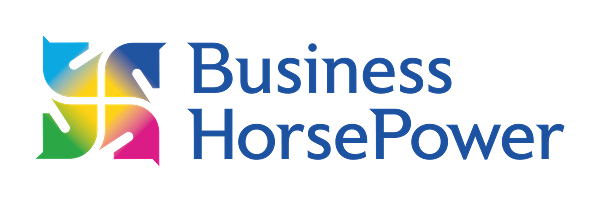In today’s fast paced society the need for teamwork is paramount. We live in an era where the current leadership paradigm is changing. No longer do the command and control structures that typified the industrial era serve us. There is a need for more collaboration and co-operation and the need to establish agile teams that can respond to rapidly changing circumstances that business find itself in.
An incredible 92% of respondents to Deloitte’s Human Capital Survey 2016 noted that organizational culture needs to change and the power of teams is on the rise, but what exactly is a team as opposed to a collective of individuals.
A team is defined as simply as a group of individuals united in pursuit of a common mission or goal, often sacrificing personal agendas for the sake of team accomplishment. It is the fact that the group have a common mission that makes them a team.
In today’s complex world teams enable us to get stuff done. In addition teams also have:
- More fun
- Provide competitive advantage
- Improve productivity and profitability
- Enhance the business identity
Furthermore teamwork builds trust and trust build speed which decreases costs and profitability. In his book The Speed of Trust Stephen M.R. Covey notes that “Trusted companies outperform their competitors by 10x”
Having led and also been a part of many teams during my lifetime I believe that there are 5 essential habits that any team must have to be highly effective and successful.
1) Shared Leadership
Leadership is no longer the bastion of just those at the top and everyone within the team needs to be a leader of sorts. Increasingly, if we look to the natural world teams often contain two leaders who work harmoniously together for the good of the team. Take a herd of wild horses for example. At the front is the lead mare who sets the pace and direction that the herd will take whilst at the rear of the herd is a stallion who drives momentum from behind and matches the pace set by the leader. From this position they can immediately see what is happening and course correct as needed.
2) Clarity of Purpose
Teams work best in a compelling context when they have a shared vision. The more urgent and meaningful the rationale for the team the more likely it is to live up to its performance potential. Team members need to ‘believe in the cause’. If they can’t, they won’t be prepared to sacrifice their own interests in the interests of the team.
This is summed up well by John F. Kennedy who noted that “Effort and courage are not enough without purpose and direction”. You can put the best group of people together but unless they are united behind a shared purpose it is likely that they will just spin around, never achieving their potential or your business goals.
Naturally of course the team goal needs to be aligned to the organisational goal for maximum impact. I remember when I was volunteering at an Elephant Human Relations Aid (EHRA) in Namibia that the purpose of the organisation was to reduce conflict on the ground between elephants and humans. When the group of volunteers went out into the bush our goal was to build strong stone walls around the water wells to protect the water wells from destruction by the elephants and so mitigate any conflict between the locals and the elephants. Our specific goal was to build the stone walls but the reason we were doing it was aligned to the purpose of the company.
3) Open and Honest Conversations
For teams to be effective everyone needs to feel heard and be able to express an opinion. It is this honest dialogue that helps teams achieve more than the sum of the parts. Through honest conversations new ideas are created and innovation ensues. In fact the worst problem in a team is a team member that does not speak with and does not participate because in teamwork, silence isn’t golden; it’s deadly.
One of the reasons for encouraging full participation in the team is that it allows everyone to articulate clearly what outcome they’re seeking. It’s surprising how often team members assume they’re talking about the same thing when in fact they’re talking past one another. For example, if your discussion is about growth some may be referring to revenue, others to market share, and others to net income. Open, honest communication quickly brings these differences to the fore.
When open and honest communication is avoided it encourages team members to join the dots themselves invariably resulting in the wrong conclusion being made. And in my experience open and honest conversations sometimes don’t take place because we are concerned with how the other person will react. We need to become like horses and after we receive feedback go straight back to grazing and stop carrying around any attachment and negativity to what the other person said.
4) Understand Your Strengths and Values
Know yourself and what you bring to the table. Teams work best when everyone is working to their strengths and the team is in flow. There are no egos in an effective team, everyone values the contribution of each other – whatever the size.
An unclear division of responsibilities or a poor understanding of roles makes it impossible for the team to fully exploit its performance capacity. Lack of clarity in this area can lead to communication problems, disputes over matters of competence or responsibility and increased stress. These in turn reduce engagement , productivity and innovation
A great example of this in the African Bush is the Dung beetle. They are often ignored when people go on safari as they are so small and clearly not so impressive as the Big Five. However the dung beetle has an invaluable job in the bush as he cleans up the 50kg of dung that is released every day by the elephants. The dung beetle rolls the dung into a ball, lays his eggs in it and then buries it. Clearly a really important role in the ecosystem of the bush. Just Imagine what would happen if they went on strike!
5) Trustworthiness and Transparency
Great teams are built on trust and it is this that enables the honest conversations to occur and for the team to leverage the strengths of its team members. No group ever becomes a team until it can hold itself accountable as a team. At its core, team accountability is about the sincere promises we make to ourselves and our team mates; promises that underpin the two other critical aspects of effective teams: commitment and trust.
Teams enjoying a strong common purpose and approach inevitably hold themselves responsible, both as individuals and as a team, for the team’s performance. This is essential for high performance, but impossible without high levels of trust.
So are you engaging in these five habits of highly effective teams? Is your team working to its maximum potential? If not spend some time working on these five areas and watch the exponential explosion in performance because the power of teams definitely comes from knowing that 1+1=3.





